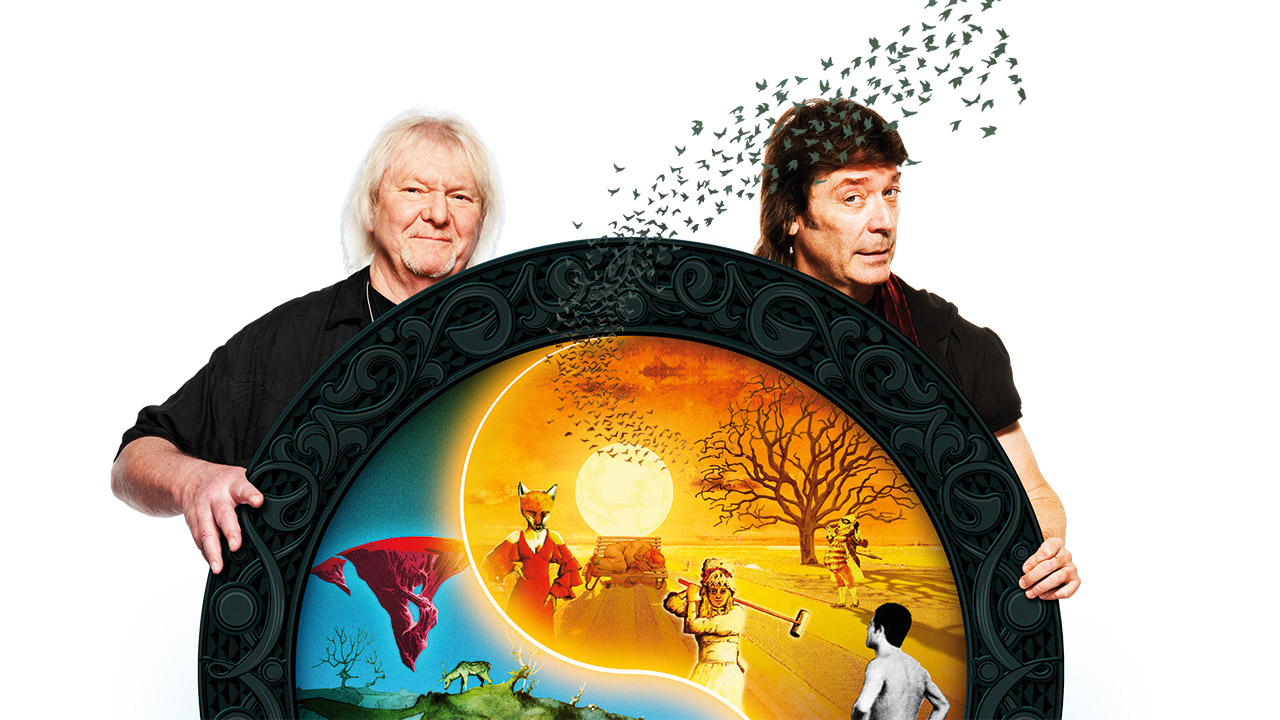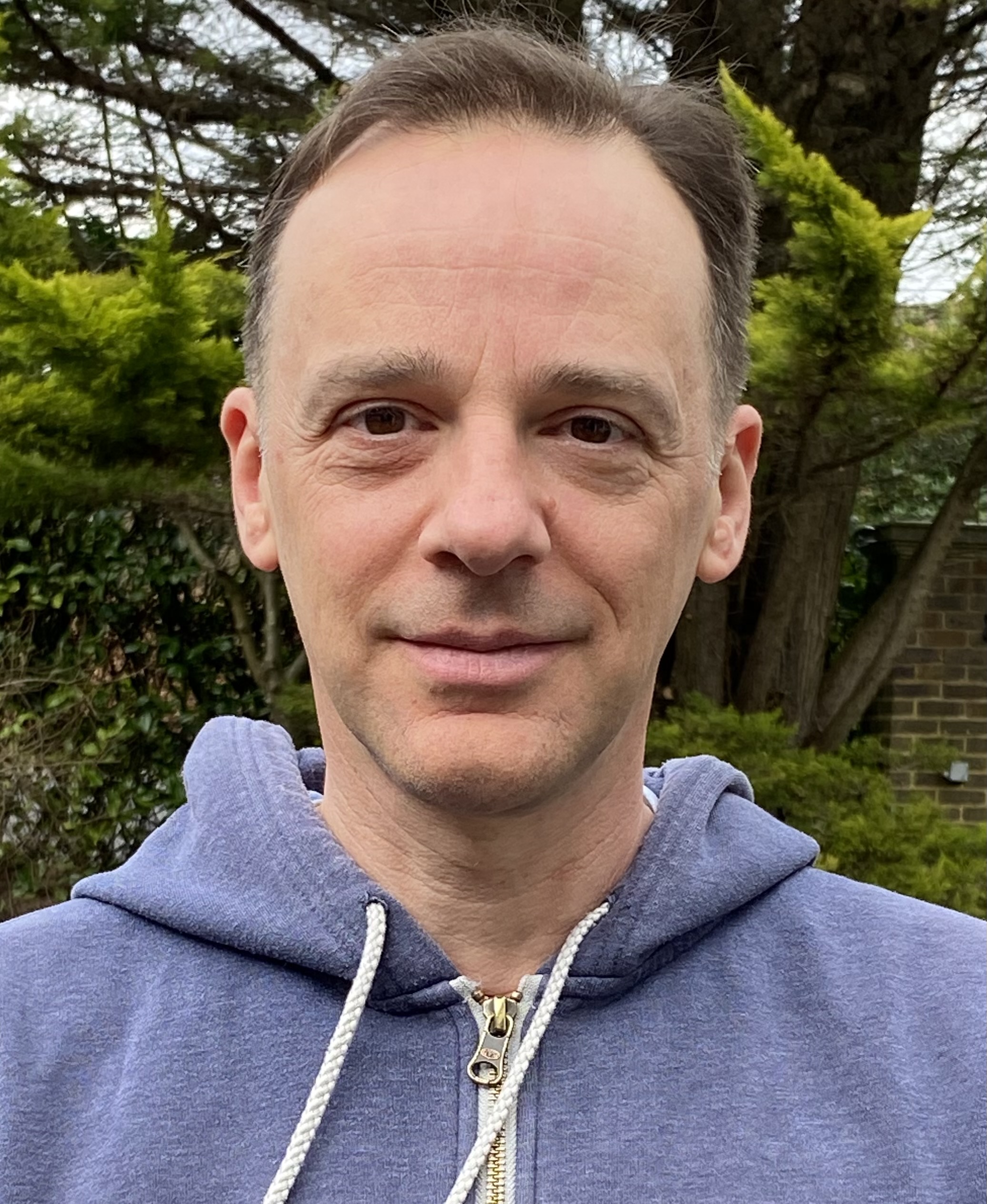The union of Chris Squire and Steve Hackett has been mentioned in dispatches for almost half a decade. In recent years Squire has guested on Hackett’s solo albums, contributing his distinctive bass guitar to tracks on 2009’s Out Of The Tunnel’s Mouth and last year’s Beyond The Shrouded Horizon. But a full-blown collaboration between the Genesis and Yes legends has taken longer to come to fruition. At one point, Squackett looked like it would become an elusive, mythical beast – until the release this May of A Life Within A Day.
Happily, Squackett proves more than worth the wait. At just 46 minutes, A Life Within A Day might seem a modest dividend for the patience invested by Yes and Genesis fans awaiting this rare foray from Squire outside Yes and Hackett’s most notable collaboration since GTR (with Yes’ Steve Howe). But never mind the quantity of music on offer, just revel in the quality: A Life Within A Day’s nine tracks both surprise and delight.
While they have never until now been in a band together, Squire and Hackett have some shared history. “I first started working with Steve in 2006 on my Christmas album [Chris Squire’s Swiss Choir],” he explains. Squire’s original vision was to involve a number of guitarists on different tracks. “I was hoping to get Jeff Beck, Brian May… but everyone was busy.”
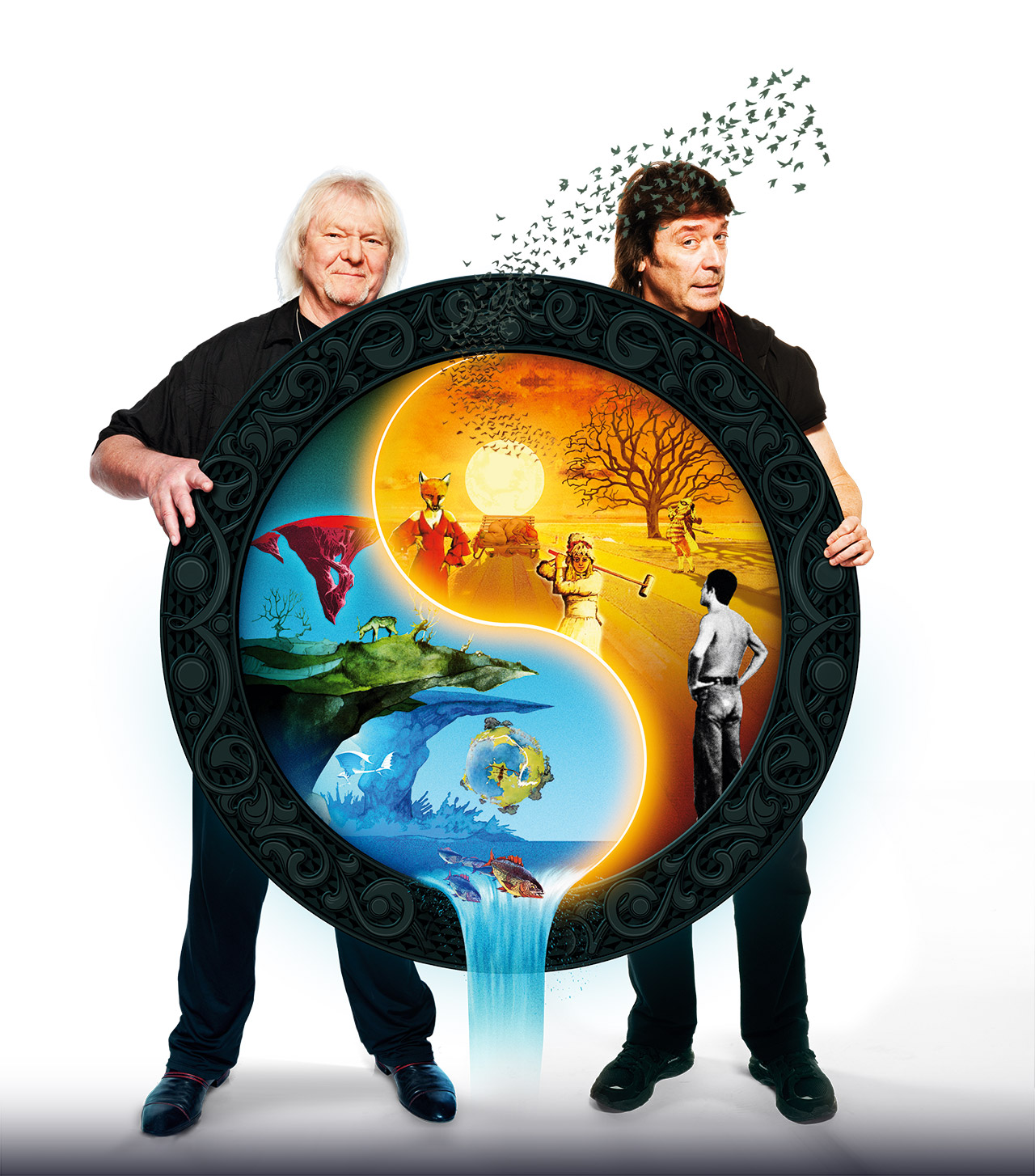
Instead, Squire’s drummer Jeremy Stacey suggested asking Steve Hackett. Surprisingly, given their respective track records, Squire and Hackett’s paths
had barely crossed. “I haven’t had a history of doing a lot of things outside of Yes,” acknowledges Squire. Initially Squire sent Hackett a couple of the songs destined for …Swiss Choir. Hackett took little persuasion. “I would have worked on anything that Chris had offered me because he’s such an icon,” says the guitarist. “When people think of bass sounds, they think of Chris.”
“What Steve did was so good that I immediately asked if he could do the whole album,” continues Squire. “After that, I said that I’d be happy to reciprocate with anything he needed me to play or sing on.” As a result, Squire guested on Hackett’s last two solo albums. In the meantime the duo considered writing a musical together, but ultimately settled for the more realistic album solution. Squire: “We started writing songs together and collaborating on things and that’s really culminated in the Squackett project.”
At the time, though, the bassist wasn’t actively seeking an outlet outside Yes. “I was living in London, doing the Christmas album, and Steve and I just developed a relationship.” The relationship with Hackett was uncomplicated and remarkably free of the titanic clash of egos that can bedevil such projects. “We got on easily and were able to create at a fast pace without feeling any pressure. That’s very valuable and helped move things along really smoothly.”
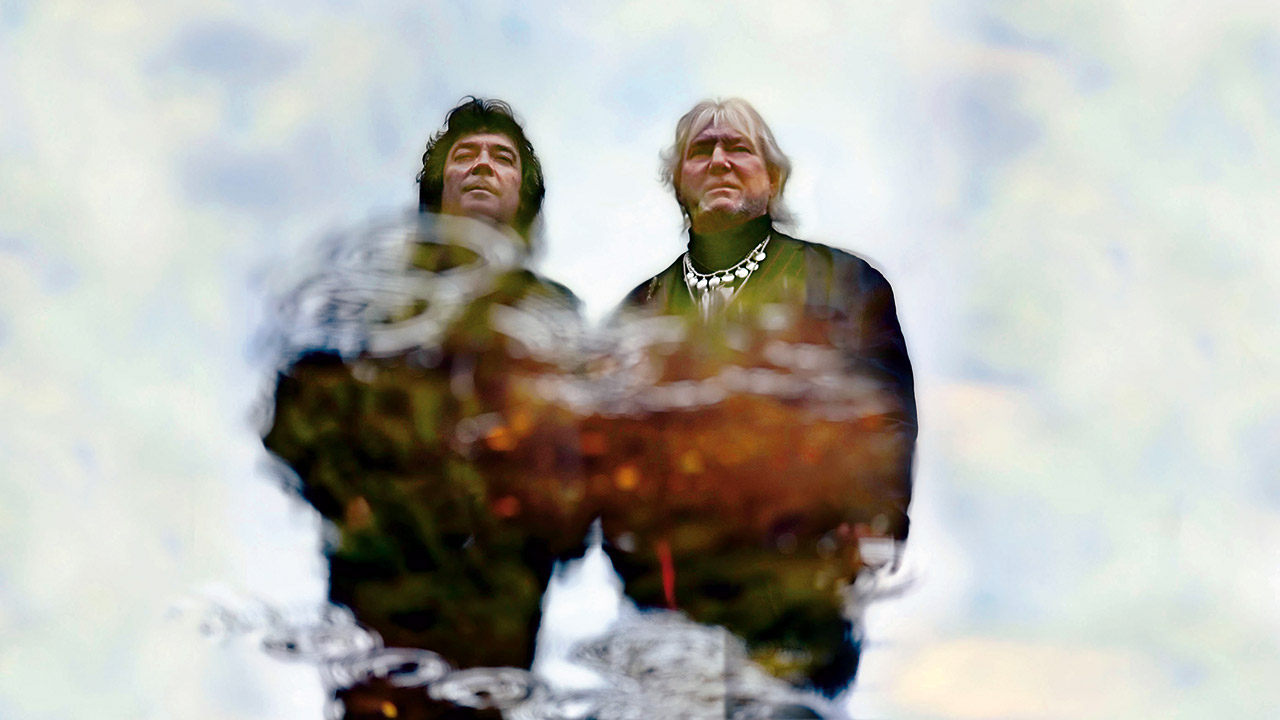
However A Life Within A Day has had a lengthy gestation, due to the belated return of Yes, the search for a suitable record label and simple geography. “When I started the album with Chris, he lived in this country and we were near neighbours,” Hackett recalls. “Suddenly America beckoned, and I had to put the album on hold for a while.” But the interregnum had an upside. “It meant that when we came back to it, it was all the stronger for that gap and there were things that we shifted around.”
Unusually, in an age when many albums are recorded by isolated musicians emailing files to each other, Hackett and Squire recorded most of the album together in Hackett’s studio or at his house. Hackett: “Most of it was done eyeball to eyeball. I didn’t want to work in splendid isolation.”
According to Hackett, writing sessions were painless. As a starting point he suggested to Squire that they pooled material. Squire offered Aliens, which had already been performed live by Yes, while Hackett contributed Stormchaser. “I had three or four songs that I had written ostensibly for a solo project but that never happened, which is the story of my life,” says Squire. In the end, Squire, Hackett and keyboardist Roger King are all credited on each track on the album, with the tour-de-force title track and another album highlight Tall Ships written specifically for A Life Within A Day.
Tall Ships came about from Squire experimenting in the studio with a new bass and playing a sinuous, muscular riff that Hackett thought could be turned into a song. “It sounded like it had some swing to it,” the guitarist recalls. “Ninety nine per cent of people I‘ve worked with cannot remember the wonderful thing they’ve just played. So unless the tapes were running, you’ve had it. But Chris remembered it, and we had the rhythm which runs throughout the whole song. There was the unvarying link which provides the engine to the journey.” Hackett added a guitar phrase, the lyric and the chorus tune, while Squire provided the verse melody.
“It was very easy to write together – a bunch of mates sat round in the living room, chipping in ideas,” Hackett continues. “It was like a giant jigsaw puzzle with three people going ‘Here’s another piece, does that fit?’. We avoided the downside of composition by committee where people whittle each other down to the bare essentials and often end up with the lowest common denominator. That can be the downside of working with a group.” Instead, Squackett avoided any dilution of ideas, with Hackett and Squire feeding off each other but also deferring to the other. This scenario was largely unfamiliar to Hackett as, since 1986’s GTR album with Yes’ Steve Howe, he has largely been captain of his own ship with his solo band.
“I didn’t mind handing the wheel to Chris and we didn’t have too many moments where we thrashed it out,” he insists. “Most of the time it was plain sailing. Occasionally we’d hit a sticky patch, but it seemed as if Chris and I had been working together all our lives.” As an example, Hackett cites the intensely commercial Divided Self. “Chris played wonderfully and transformed it. He doesn’t just play a bass line. It must be his choral background, but he comes up with another melody, counterpoint, descant, and makes it swing. He does all those things naturally that I suspect other bass players dream of. He plays with a guitarist’s sensibility. There is that sense of the size of the bass sound, but there’s also that twang and ring so you can always focus on the bass part. It’s always clear as a bell and it’s not just all about how loud it is in the mix.”
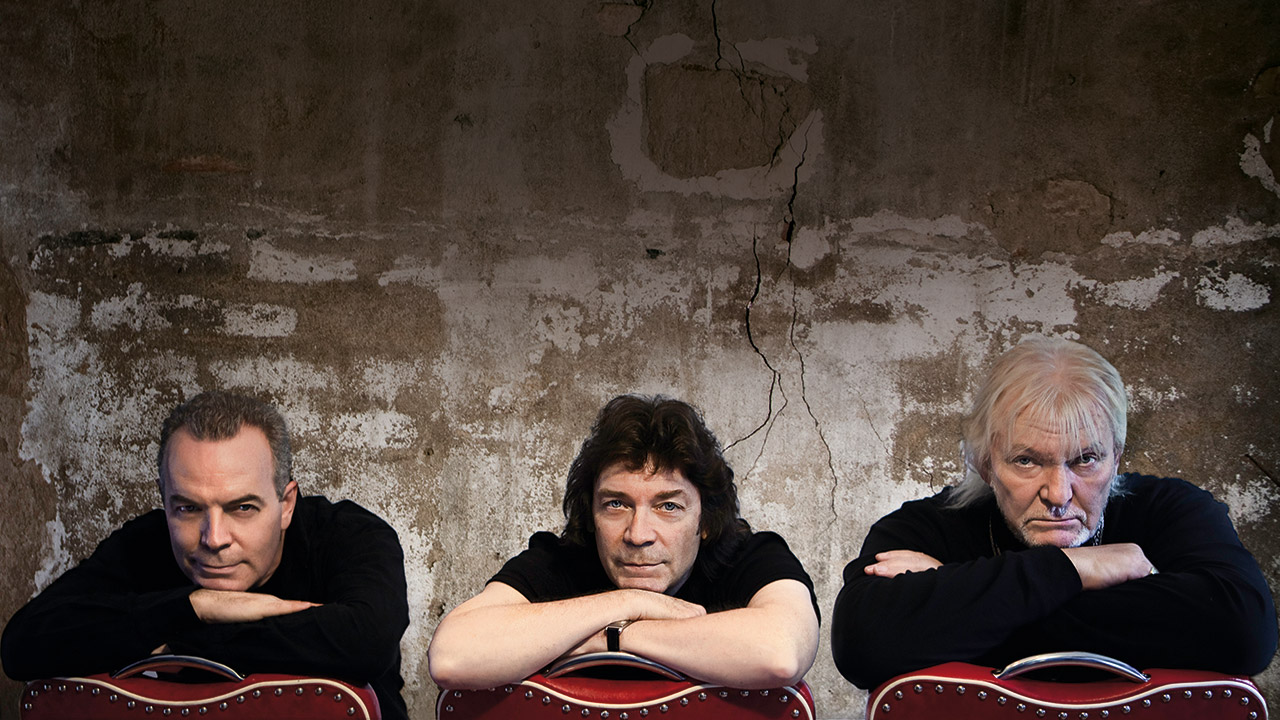
Another striking feature of A Life Within A Day is the significant use of harmony vocals. “Chris and I are both fans of the great harmony bands – The Beatles, The Who, Crosby Stills & Nash,” says Hackett. While vocal harmonies featured prominently in Yes, they were less prevalent in Genesis. “I was often trying to steer it that way with my own stuff. I’ve often favoured harmonies, so we made them a raison d’être on this album.”
“My voice and Steve’s blend well together,” adds Squire. “That’s something I was surprised about, and the more we worked on harmonies the better they became.” Hackett and former choirboy Squire are responsible for all the vocals on the album, save for an appearance from Amanda Lehmann, a Hackett band regular who supplies some backing vocals, most notably on the smooth-as-silk Can’t Stop The Rain. Hackett thought that the track had an “a Burt Bacharach aspect to the chorus. So I suggested we go the whole hog and make it sound really luxurious and get some girls in. It needed some pink – something feminine.”
As the Bacharach reference suggests A Life Within A Day contains some surprises, but it shouldn’t disappoint fans of Hackett or Squire. As Hackett explains, the tempo for much of the album is very laidback, but it’s hugely atmospheric and rich in detail. There are some exceptions however, most notably the frenetic middle section of the title track, which should sate the appetites of those willing the two to cut loose instrumentally.
But suspicions that this might be a cynically contrived ‘GeneYes’ prove wide of the mark. A Life Within A Day isn’t the record you might expect two veterans of Genesis and Yes to make. There was no masterplan, says Hackett.
“It happened more naturally,” he explains. “We were working on a number of things for each other, and from the very first thing that Chris did on something of mine, I could see that he was really genuinely enjoying it. His whole body was moving. I realised that I had this top bass player, who is such a hero to a lot of people, giving it everything. Chris runs on enthusiasm and he’s passionate about music.”
Hackett and Squire didn’t set out to specifically cater to the Yes/Genesis audience, but one track comes close. “There’s a track called The Summer Backwards, which is a nod to all things psychedelic and the 1960s,” reveals Hackett. “Listening to it a few days ago, I came to the conclusion that with two 12-strings and harmonies we’ve got Yes and Genesis really. But that’s not what I was intending to do at the time.” In fact The Summer Backwards was originally earmarked for a Hackett solo album before Squire intervened.
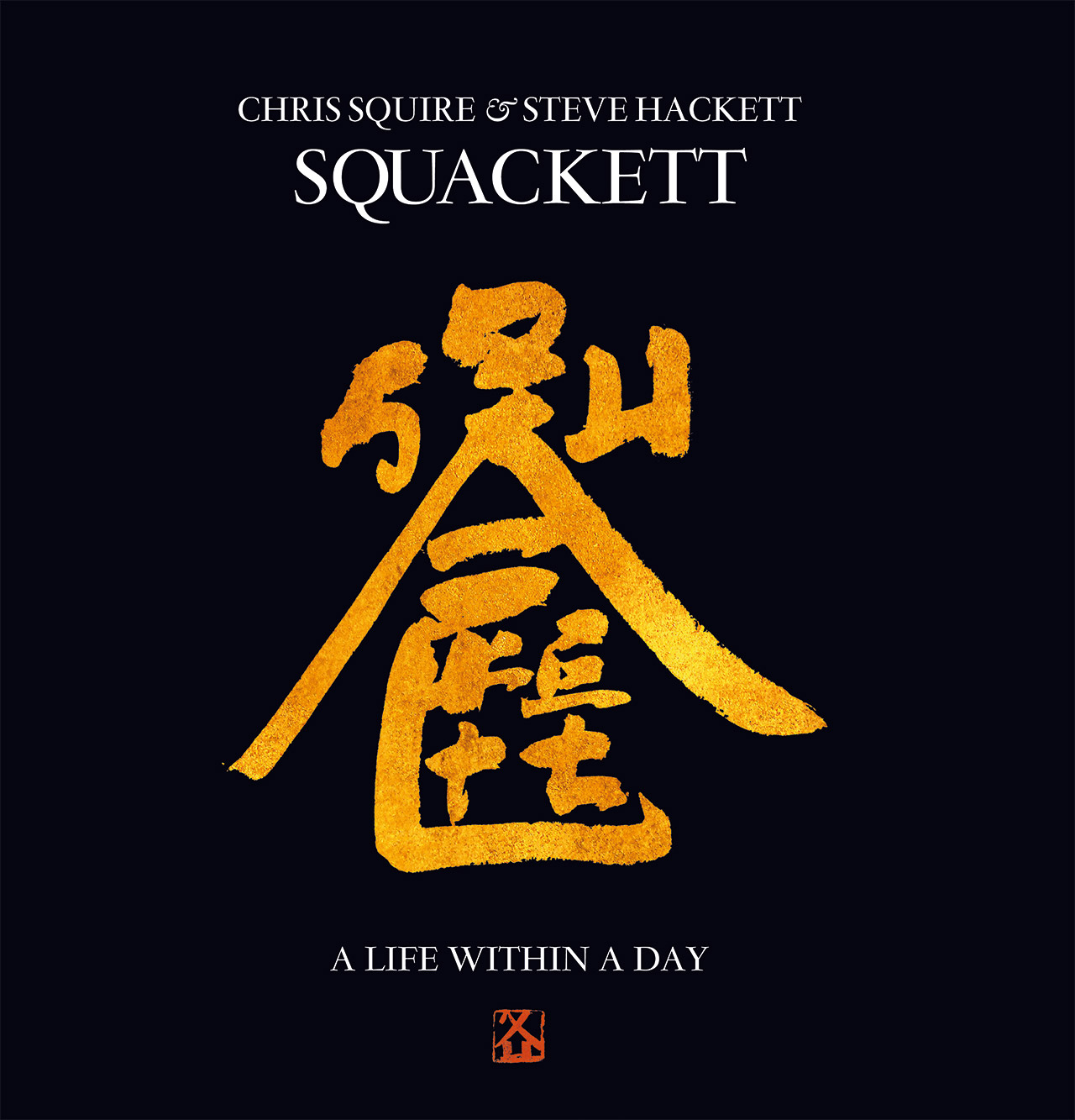
Hackett and Squire drew on a wider array of reference points, including Led Zeppelin and The Beatles. The Zep influences are most apparent on Stormchaser and the title track. “It’s John Bonham meets Phil Collins meets Jason Bonham meets Jeremy Stacey meets the production values of the 1980s,” laughs Hackett. “Many years ago in Genesis we were driving around the Shepherd’s Bush roundabout, having just driven back from Belgium or Italy with no sleep all night, and Kashmir by Zeppelin came on. We all stopped in our tracks, particularly Peter Gabriel and myself. The drums were enormous. It was Radio Luxembourg so it was probably even more distorted and strange coming to us in mono.
“This was nectar to the ears, a breath of fresh air. I loved the simple, demonic, relentless, mechanical approach to drums that just marched through time itself.
It was a huge influence on Phil [Collins], Peter and me. Chris’s favourite Zep track is Kashmir, surprise, surprise. In a sense it’s the model for something that can be both orchestral but minimal, something that has pauses.
“For years I’ve been trying to deny the fact that I love slow powerful rhythms – I thought they might be a bit soggy for people who want their rock to be fast. Again, I noticed these slow, heavy rhythms crop up on Joe Bonamassa’s stuff, like The Ballad Of John Henry. There’s something about the earthiness of that.
“I’m like a gannet,” adds Hackett. “I don’t have any prejudice against any musical form any more, because I’ve been caught out before.” Hackett doesn’t disagree with the suggestion that he’s a musical contrarian. After all, choosing to exit Genesis in 1977 was a brave move. “I’ve always tried to prove a point,” he admits. “I’ve always wanted to prove people wrong.”
While Squackett is certainly varied, Chris Squire is keen to point out that historically Yes have always been willing to head off in different musical directions: “I never put limits on Yes. We’ve delved into so many different areas over the years. We were more of a rock band in the 80s, more of a proggy jazz band in the 70s. I’m not afraid of moving in and out of different areas with Yes.”
An album whose longest tracks are under seven minutes might confound anyone expecting prog rock epics. Squire: “There was no conscious effort to say, ‘This is what we’ve done in our various bands in the past so let’s do something different.’ We just got on with it and should something have turned out to be a 10-minute plus track and we liked it, we would have used it. There were no guidelines.”
As a teenager, Porcupine Tree mainman Steven Wilson was a swift convert to Hackett’s solo material. “When I was discovering the wonderful world of progressive music, one of the first albums I happened across was Steve’s Please Don’t Touch album, which totally blew me away. The second side especially remains for me one of the most inspiring 20-minute sequences of music ever recorded, covering everything from beautiful orchestral soul ballads to the dark nihilism of the title track, and all points in between.”
Wilson declares himself a fan of Hackett’s other early solo albums but is also an enthusiast of Hackett’s more recent work: “It’s been inspiring to hear how his last few albums have recaptured the very best of that 70s work, but with a modern twist. Steve’s music is epic and musically dazzling but always retains great songwriting and melody at its core.”
While Hackett’s recent solo albums have their merits, Squackett arguably has greater commercial potential. Whether that potential will be fully realised may depend on how much time and effort Hackett and Squire put into promoting it. Hackett relishes the opportunity to continue the partnership: “There’s a sense of harmony between us. Nobody was trying to knock anyone down.” But it’s unclear yet whether Squackett will tour, Squire’s schedule with Yes having nixed a potential opportunity to play at last year’s High Voltage festival in London.
“I would like to think that there’s time in the midst of our busy schedules to play live together,” admits Hackett. “But I don’t want to make promises I can’t keep.”
“There’s a possibility that around September, October we’ll do Squackett live,” Squire teases. “But we haven’t pinned anything down.”
Hackett’s enthusiasm for playing live remains undiminished and the 62-year-old continues to put in plenty of time on the road. “My attitude is that the clock is ticking for me. I love playing live. I do it because I must. I always want to do everything at 100 miles an hour. I think Chris has a more measured approach.”
In the meantime, talk of another Genesis Revisited album should tantalise the Genesis faithful.
But Hackett isn’t rushing to release it just yet, lest A Life Within A Day be overshadowed. “Let’s give Squackett mania a chance to have its day!” he proclaims with glee.
This article originally featured in issue 26 of Prog Magazine.
